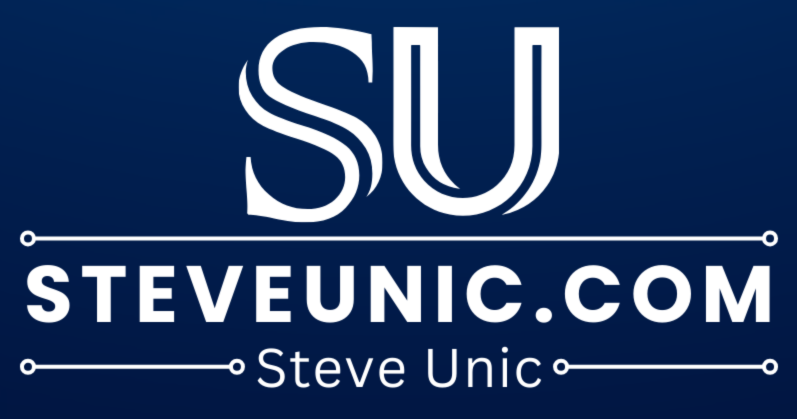

Life insurance is an essential insurance coverage that helps reduce financial burdens or save as savings for your beneficiary upon death. However, there have been questions about whether it is possible to borrow against life insurance Canada. It was ascertained that it is possible, but you can’t do that for all types of life insurance.
Having ascertained that it is possible to borrow against life insurance, the next question is usually, “How to borrow against life insurance.” We will dig deeper into discussing how you can borrow against Life Insurance Canada and the modalities around it.
Disclosure: My site is reader-supported. I may get commissions when you click through the affiliate links (that are great products I use and stand by) on my articles.

How To Borrow Against Life Insurance Canada
- Life insurance is an essential insurance coverage that helps reduce financial burdens or save as savings for your beneficiary upon death. However, there have been questions about whether it is possible to borrow against life insurance Canada. It was ascertained that it is possible, but you can’t do that for all types of life insurance.
- Having ascertained that it is possible to borrow against life insurance, the next question is usually, “How to borrow against life insurance.” We will dig deeper into discussing how you can borrow against Life Insurance Canada and the modalities around it.
How To Borrow Against Life Insurance Canada

Borrowing against a life insurance policy in Canada typically involves utilizing the cash value accumulated in a permanent life insurance policy. This does not apply to term life insurance, as it doesn’t usually have a cash value component.
Here’s a general overview of the process involved in borrowing against life insurance Canada.
- Check Your Policy Type: Verify your permanent life insurance policy (whole life, universal life) with a cash value component. Term life insurance does not accumulate cash value and cannot be borrowed against.
- Contact Your Insurance Company or Agent: Contact your insurance company or agent to inquire about borrowing against your policy’s cash value. They can provide specific information about your policy’s terms, your accumulated cash value, and the borrowing options available.
- Review Terms and Interest Rates: Understand the terms and conditions of borrowing against your policy. There might be a limit to how much you can borrow, and the insurance company may charge interest on the borrowed amount. Make sure you’re aware of these details before proceeding.
- Complete Necessary Forms: Your insurance company will likely have specific forms for you to fill out to initiate the borrowing process. These forms may require information about the amount you want to borrow and the purpose of the loan.
- Loan Approval: The insurance company reviews your loan request. Since the cash value serves as collateral for the loan, approval is generally straightforward as long as your policy has sufficient cash value. There’s no need for credit checks or external collateral.
- Accessing the Loan: Once your loan is approved, you can receive the funds in different ways, such as a check or direct deposit. The borrowed amount is not taxable since it’s a loan against your assets.
- Repayment Terms: Understand how the loan repayment works. Some policies allow you to repay the loan on your schedule, while others may require regular interest payments. Remember that unpaid loans, including accumulated interest, will be deducted from the policy’s death benefit if you die or pass away before repaying the loan.
Note that borrowing against your life insurance policy will reduce the cash value and potentially the death benefit of the policy. It’s important to carefully consider this before proceeding with it.
Also, borrowing against your life insurance policy is generally not taxable. However, if the policy were to lapse or be surrendered with an outstanding loan, there could be tax consequences.
Is It Wise to Borrow Against Your Life Insurance Policy?

Whether it’s wise to borrow against your life insurance policy depends on your financial situation, goals, and needs. Here are the pros and cons to consider when deciding whether borrowing against your life insurance policy is a prudent decision:
Pros:
- Easy Approval: Borrowing against a life insurance policy is usually easier than obtaining other types of loans because the cash value serves as collateral. There’s typically no need for a credit check or extensive application process.
- Lower Interest Rates: Interest rates on loans against life insurance policies are lower than those for credit cards or personal loans. This can make it a more cost-effective borrowing option.
- Flexible Repayment: Many policies offer flexible repayment options, allowing you to repay the loan on schedule. You can pay only the interest, repay both principal and interest or even make a lump sum payment.
- No Impact on Credit Score: Since the loan is secured by the policy’s cash value, borrowing against your life insurance generally doesn’t impact your credit score.
- Tax Advantages: Loan proceeds from a life insurance policy are generally not taxable. Additionally, the interest you pay on the loan may be tax-deductible in certain cases.
- Preservation of Investment: Borrowing against your policy allows you to access funds while keeping the underlying life insurance policy intact. This can be beneficial if you want to preserve the investment you’ve made in the policy.
Cons:
- Reduced Death Benefit: Borrowing against your policy decreases the cash value and the death benefit. If you pass away with an outstanding loan, the loan amount plus interest will be minus the death benefit paid to your beneficiaries.
- Potential Lapse of Policy: If the loan and interest accumulate to a point where they exceed the policy’s cash value, the policy could lapse if not managed properly.
- Opportunity Cost: Your policy’s cash value may have been invested for growth. Borrowing against it can reduce the potential earnings on that investment.
- Interest Payments: If you choose not to pay back the loan and interest, they will accumulate over time, potentially significantly impacting the policy’s value and your beneficiaries’ payout.
- Complexity: The terms of borrowing against a life insurance policy can be complex. Before proceeding, it’s important to thoroughly understand the terms, interest rates, and potential consequences.
Additional Considerations:
In addition to the pros and cons, below are some considerations you should ponder before deciding on borrowing against life insurance.
- Financial Goals: Assess why you need the funds and whether borrowing against your policy aligns with your short- and long-term financial goals.
- Alternatives: Explore other borrowing options, such as personal loans or lines of credit, to compare terms and interest rates.
- Consult Professionals: Before deciding, consult a financial advisor and potentially a tax professional to understand the impact on your overall financial plan and any potential tax implications.
- Loan Repayment: Have a clear plan for repaying the loan to avoid negative consequences.
How Soon Can I Borrow Against My Life Insurance Policy?

There is no specific timeline, as it depends on the terms set by your insurance company and the specific policy you have. In general, there is a waiting period after the policy is issued before you can start borrowing against its cash value.
Most insurance companies require your policy to be in force for a certain period before you can borrow against its cash value. This period is often called the “surrender charge” or “waiting period.” The waiting period is often around one to five years after the policy is issued. During this time, your policy accumulates cash value and stabilizes.
Is Money Borrowed From Life Insurance Taxable In Canada?
In Canada, money borrowed from a life insurance policy is generally not taxable. The borrowing itself does not trigger any tax liabilities. This is because the borrowed amount is considered a loan against the policy’s cash value, and loans are not treated as taxable income.
However, there are some important considerations to keep in mind: They are as follows:
- Policy Lapse or Surrender: There could be tax consequences if the policy lapses or is surrendered with an outstanding loan balance. The outstanding loan balance could be treated as a taxable distribution if the policy’s cash value is insufficient to cover the loan.
- Interest Deductibility: The interest paid on the loan might be tax-deductible if the borrowed funds are used for income-producing or investment purposes. This can provide a potential tax advantage, but consulting with a tax professional is important to understand the specific rules and limitations.
- Policy Lapse upon Death: If you pass away with an outstanding loan balance, the loan amount plus accrued interest will be deducted from the death benefit paid to your beneficiaries. This could affect the overall tax implications for your estate.

How To Borrow Against Life Insurance Canada
- Life insurance is an essential insurance coverage that helps reduce financial burdens or save as savings for your beneficiary upon death. However, there have been questions about whether it is possible to borrow against life insurance Canada. It was ascertained that it is possible, but you can’t do that for all types of life insurance.
- Having ascertained that it is possible to borrow against life insurance, the next question is usually, “How to borrow against life insurance.” We will dig deeper into discussing how you can borrow against Life Insurance Canada and the modalities around it.
How Long Does it Take to Accumulate Cash Value on Life Insurance?

The time it takes to build cash value in a life insurance policy varies depending on your policy type, the amount of your premium payments, the policy’s investment performance, and the policy’s specific terms.
Whole life insurance policies typically build cash value more slowly at the beginning and then accelerate over time. Cash value accumulates as you make premium payments, and a percentage of each payment goes toward the cash value. Building a significant amount of cash value can take several years, often 10 to 15 years or more.
Which is the Life Insurance Policy Generates Immediate Cash Value?

Among the various types of life insurance policies, whole life insurance is the type that typically generates immediate cash value. Whole life insurance is a form of permanent life insurance that provides lifetime coverage as long as premiums are paid.
Whole life insurance policies include a savings or investment component known as the “cash value.” A percentage of your premium payments goes into this cash value, which grows over time. Also, it guarantees a minimum cash value growth rate. This means that your cash value will increase by a predetermined amount with each premium payment. As a result, you start building cash value from the beginning of the policy.
How to Use Life Insurance to Build Wealth?

Using life insurance to build wealth involves utilizing certain permanent life insurance policies with a cash value component. Here are some strategies to consider if you want to leverage life insurance to build wealth:
- Choose the Right Policy: Opt for a permanent life insurance policy such as whole life, universal life, or indexed universal life. These policies have a cash value component that can grow over time.
- Start Early: The longer you hold the policy, the more time the cash value accumulates and potentially grows. Starting a policy early can maximize its wealth-building potential.
- Consistent Premium Payments: Make consistent premium payments to ensure the policy’s cash value grows steadily. Missing payments can impact the growth of the cash value.
- Maximize Contributions: If you have a universal life or indexed universal life policy, you might have flexibility in premium payments. Contributing more than the minimum required premium can accelerate the cash value growth.
- Diversify Investments: You can choose among various investment options if you have a variable life insurance policy. Diversifying your investments can help manage risks and potentially enhance returns.
Can You Cash Out Life Insurance Before Passing Away?

Yes, it is often possible to cash out a life insurance policy before death by surrendering it. Surrendering a life insurance policy means you terminate the policy and receive the accumulated cash value within it.
However, surrendering the policy can trigger taxable events if the cash value exceeds the total premiums paid into the policy. Also, when you surrender the policy, you receive the accumulated cash value minus surrender charges or fees. Additionally, the primary purpose of life insurance, which is to provide a death benefit to your beneficiaries upon your passing, is eliminated.
People Also Ask:
What Life Insurance Allows You to Withdraw Money?
Permanent life insurance policies generally allow policyholders to withdraw money from the accumulated cash value within the policy. You cannot borrow against term life insurance as it has no cash value component.
How Much Money Can You Borrow Against Life Insurance Policy?
The specific amount you can borrow against your life insurance policy depends on several factors, including the type of policy you have, the accumulated cash value, and the insurance company’s terms. Generally, you can borrow up to 90% of your accumulated cash value.
What is The Interest Rate on a Life Insurance Loan?
The interest rate on a life insurance loan varies significantly based on the insurance company, the type of policy you have, and the loan terms. In general, the interest rates on life insurance loans tend to be lower than those for traditional loans like credit cards or personal loans. However, specific rates can still vary.

How To Borrow Against Life Insurance Canada
- Life insurance is an essential insurance coverage that helps reduce financial burdens or save as savings for your beneficiary upon death. However, there have been questions about whether it is possible to borrow against life insurance Canada. It was ascertained that it is possible, but you can’t do that for all types of life insurance.
- Having ascertained that it is possible to borrow against life insurance, the next question is usually, “How to borrow against life insurance.” We will dig deeper into discussing how you can borrow against Life Insurance Canada and the modalities around it.
Conclusion
You can only borrow against whole life insurance plans, and it is advised that you review the insurance provider’s terms and conditions before going ahead to borrow. Always try to explore the options available before you settle to borrow against your life insurance.






